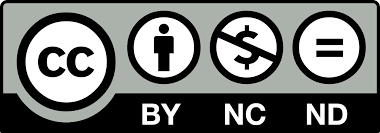Minimum Wage Impact on the Polish Economy
Anna Krajewska
College of Economics and Social Sciences, Warsaw University of TechnologyMagdalena Kapela
College of Economics and Social Sciences, Warsaw University of TechnologyAbstract
This paper focuses on the analysis of the impact of the minimum wage on the Polish economy. It consists of three parts. The first part contains a short overview of the economic literature on the minimum wage in Poland and the results of research on this subject. The conclusions of these studies are unclear, which indicated the need to further analyze statistical data and assess the effects of raising the minimum wage in Poland. In the second part, an attempt is made to examine the correlation between the level of minimum wage and the rate of its change in Poland in the years 1992–2016 and basic economic indicators such as: level and rate of average wage growth, GDP, labor productivity, price growth dynamics and unemployment rate. Spearman’s correlation coefficients were used for this analysis. The third part concerns the perceived and potential effects of raising the minimum wage in 2017 to PLN 2,000 and introducing a minimum hourly rate of PLN 13. The focus is mainly on analyzing and assessing the impact of these decisions on the labor market in Poland. The positive aspects are presented as well as the dangers of introducing a minimum hourly wage. The article concludes that both the statistical data covering the last 25 years and the labor market analysis in 2017 do not support the negative effects of the minimum wage for the Polish economy.
Keywords:
minimum wage, labor market, unemployment, economyReferences
A Strong Minimum Wage Can Help Working Families, Business and Our Economy Recover. 2011. NELP, New York. Google Scholar
Baczewski G., Sarzalska M., Zielonka M. 2013. Analiza poziomu minimalnego wynagrodzenia w Polsce. Dialog, 1(36): 14–25. Google Scholar
Będą zwolnienia pracowników z powodu kolejnego wzrostu płacy minimalnej. 2017. http://biznes.onet.pl/praca/bezrobocie/beda-zwolnienia-pracownikow-z-powodu-kolejnego-wzrostu-placy-minimalnej/m4mzq1 (access: July 18, 2017). Google Scholar
Broniatowska P., Majchrowska A., Żółkiewski Z. 2013. Wynagrodzenia minimalne w Polsce. Google Scholar
Czy powinny być zróżnicowane regionalnie. Studia BAS, 3/4(36). Google Scholar
Brown Ch., Girloy C., Kohen A. 1982. The Effect of the Minimum Wage on Employment and Google Scholar
Unemployment. Journal of Economic Literature, 20. Google Scholar
Brown Ch., Girloy C., Kohen A. 1983. Time-series, Evidence of the Effect of the Minimum Wage on Youth Employment and Unemployment. Journal of Human Resources, 18. Google Scholar
Card D., Kruger A.B. 1995. Minimum Wages and Employment: A Case Studies of the Fast-Food Industry in New Jersey and Pennsylvania. The American Economic Review, 84(4). Google Scholar
D’Arcy C., Corlett A. 2015. Taking up the Floor: Exploring the Impact of the National Living Google Scholar
Wage on Employers. Resolution Foundation, London, UK. Google Scholar
Fundowicz J., Łapiński K., Wyżnikiewicz B. 2018. Szara strefa 2018. Instytut Prognoz i Analiz,Warszawa. Google Scholar
Godusławski B. 2017. Przybywa stabilnej pracy. Puls Biznesu, February 24–26. Google Scholar
Golinowska S. 2001. O przyczynach bezrobocia i polityce jej zwalczania. Głos w debacie. Polityka Społeczna, 3(324). Google Scholar
Grzeszczak A. 2017. Program 2000 plus. Polityka, 2(3093), January 11–17. Google Scholar
Guza Ł. 2016. Pracodawcy we mgle. Dziennik. Gazeta Prawna, October 21–23. Google Scholar
Idczak M. 2011. Wpływ płacy minimalnej na zatrudnienie. Wiadomości Statystyczne, 11: 48–60. Google Scholar
Jacukowicz Z. 2007. Analiza minimalnego wynagrodzenia za pracę. Studia i Monografie, IPiSS, Warszawa. Google Scholar
Jarzyński W., Rzońca A., Stolarczyk P., Wojciechowski W. 2014, Płaca minimalna zabija Google Scholar
miejsca pracy. Analiza FOR, 2: 1–9. Google Scholar
Job Searching Poll Results. 2014. http://jobsearch.about.com/gi/pages/poll.htm?poll_id-0945016375. Google Scholar
Kabaj M. 2013. Makroekonomiczne determinanty wynagrodzenia minimalnego. Polityka Społeczna, 8: 8–15. Google Scholar
Kamińska A., Lewandowski P. 2015. Wpływ płacy minimalnej na rynek pracy o znacznym odsetku zatrudnienia czasowego. IBS Working Paper, 7. Google Scholar
Konwencje i zalecenia Międzynarodowej Organizacji Pracy 1919–1994. 1996. PWN, Warszawa. Google Scholar
Krajewska A. 2014. Changing Role of the Minimum Wage in the Economy. Paper at the 27th Google Scholar
Annual Conference, Congress of Political Economists International, Zurich, July 6–12. Google Scholar
Krajewska A., Krajewski S. 2013. Is the Minimum Wage Detrimental to the Economy? Olsztyn Economic Journal, 8(4): 317–330. Google Scholar
Lentowicz Z. 2017. Nadciąga kolejna fala zwolnień w ochronie. Rzeczpospolita, May 29. Google Scholar
Miączyński P. 2017. Wojna płacowa w handle. Gazeta Wyborcza, January 20. Google Scholar
Minimum wage statistic. 2016. Eurostat. Statistics Explained. http://ec.europa.eu/eurostat/statistics-explained/index.php/Minimum_wage_statistics (access: 20.07.2017). Google Scholar
Neumark D., Salas J. M. I., Wascher W. 2014. More on Recent Evidence on the Effects of Minimum Wages in the United States. NBER Working Paper, 20619. Google Scholar
Rocznik Statystyczny Pracy 2015. 2016. GUS, Warszawa. Google Scholar
Rozwadowska A. 2016. Unprepared for PLN 13. Gazeta Wyborcza, December 02. Google Scholar
Rozwadowska A. 2017a. Uczciwa godzina kosztuje 17,95 zł Gazeta Wyborcza, February 24. Google Scholar
Rozwadowska A. 2017b. Państwo wykorzystuje pracowników. ZUS płaci grosze. Gazeta Wyborcza, May 29. Google Scholar
Rutkowski W. 2013. Płaca minimalna – duży problem. Polityka Społeczna, 8: 1–8. Google Scholar
Suchecki B. 1999. Narzędzia kształtowania dochodu godziwego w Polsce. In: Wynagrodzenia Google Scholar
godziwe. Koncepcje i pomiar. Ed. S. Borkowska. IPiSS, Warszawa, pp. 155–188. Google Scholar
Wojciechowski K. 2017. Niech zapłacą inni. Dziennik. Gazeta Prawna, January 5–8. Google Scholar
Wyżnikiewicz B. 2012. Wzrost minimalnego wynagrodzenia jest szkodliwy dla gospodarki. Gazeta Wyborcza, December 06. Google Scholar
College of Economics and Social Sciences, Warsaw University of Technology
College of Economics and Social Sciences, Warsaw University of Technology
License
An Author declares that his paper has not been published before (under the same or another title, or is a part of another publication) and does not infringe copyrights of other persons**. At the same time, the Author transfers to the Publisher the exclusive right to publish and to circulate this work in print in the form of a non-serial journal publication and in a form of an electronic publication.
The journal is available on Creative Common license CC-BY-NC-ND






